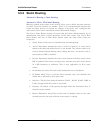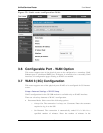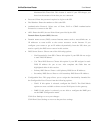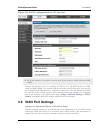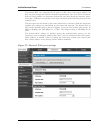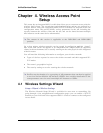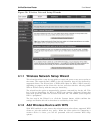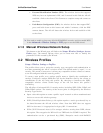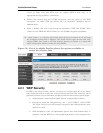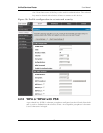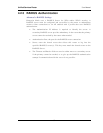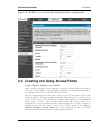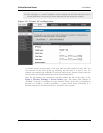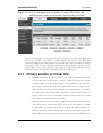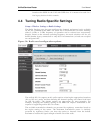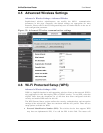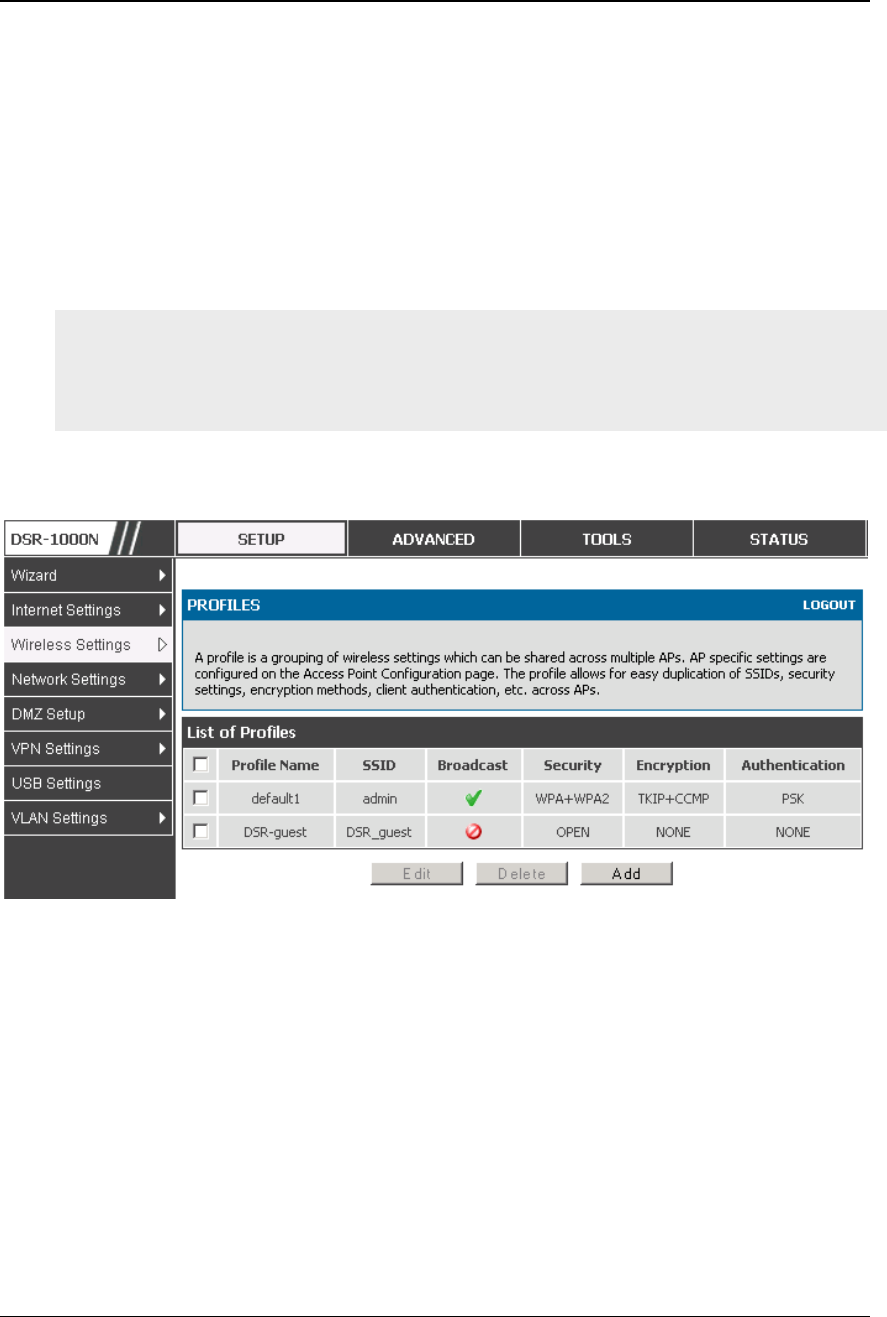
Unified Services Router User Manual
56
server, or both. Note that WPA does not support 802.11n data rates; is it
appropriate for legacy 802.11 connections.
WPA2: this security type uses CCMP encryption (and the option to add TKIP
encryption) on either PSK (pre-shared key) or Enterprise (RADIUS Server)
authentication.
WPA + WPA2: this uses both encryption algorithms, TKIP and CCMP. WPA
clients will use TKIP and WPA2 clients will use CCMP encryption algorithms.
―WPA+WPA2‖ is a security option that allows devices to connect to an AP using
the strongest security that it supports. This mode allows legacy devices that only
support WPA2 keys (such as an older wireless printer) to connect to a secure AP
where all the other wireless clients are using WPA2.
Figure 29: List of Available Profiles shows the options available to
secure the wireless link
4.2.1 WEP Security
If WEP is the chosen security option, you must set a unique static key to be shared
with clients that wish to access this secured wireless network. This static key can be
generated from an easy-to-remember passphrase and the selected encryption length.
Authentication: select between Open System, or Shared Key schemes
Encryption: select the encryption key size -- 64 bit WEP or 128 bit WEP.
The larger size keys provide stronger encryption, thus making the key more
difficult to crack
WEP Passphrase: enter an alphanumeric phrase and click Generate Key to
generate 4 unique WEP keys with length determined by the encryption key



